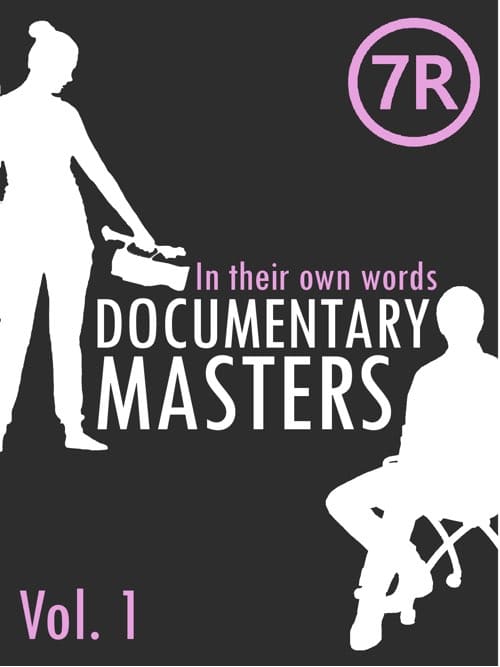These three Doc NYC highlights, which are all directed by women, are worth a watch before the virtual festival closes.

Like so many festivals this year, New York City’s annual documentary film showcase, DOCNYC, has gone online and is available across the US for the first time. The festival features many Seventh Row favourites from other festivals, including Love & Stuff, Stateless, No Ordinary Man, Mayor, and The Truffle Hunters. Here are some capsule reviews of the new-to-us festival highlights, all directed by women, which are all streaming until November 19.
Chasing Childhood

American parents have taken helicopter parenting to new extremes in Margaret Munzer Loeb and Eden Wurmfeld’s new documentary, Chasing Childhood. Following parents across social classes and race, from rural to urban environs, Loeb and Wurmfeld diagnose an unexpected problem: children are over-scheduled, given very little freedom by their parents, and the result has been unprecedented levels of anxiety and depression.
One of the parents we follow in the film is Lenore Skenazy, who made national headlines as “America’s worst mom” for allowing her nine-year-old son ride the subway on his own. In the film, she’s now taken on an activist role, meeting with parents and children to help parents find a way to let their children become more independent, with things as small as allowing them to walk around the block. She meets up with Genevieve Eason, a wealthy Connecticut mother who has started advocating for “free range parenting”, after her daughter developed a drinking problem in university because of all the pressures she faced… Keep reading.
Tickets to stream Chasing Childhood are available here until November 29. Chasing Childhood is an acquisition title.
Read our full review of Chasing Childhood here.
Stray

Between the documentaries Space Dogs (2019) and Los Reyes (2018) and the fictional dystopia White God (2014), stray dogs have been a topic of great cinematic interest in the last few years. American filmmaker Elizabeth Lo’s Stray is the latest entry in this genre, and like the fiction film White God, it keeps us in the dogs’ point of view, with the camera at their eye level. While its predecessors focused on stray dogs in Russia, Chile, and Romania, respectively, Lo trains her camera on the strays of Istanbul, Turkey, where policy to eliminate strays failed, and the strays are now left to their own devices, and exist in fairly large numbers.
In particular, Lo follows a dog named Zeytin over the course of what feels like a few days, though Lo shot the film herself over six months. Zeytin searches for food, finds friends, and interacts with humans. It’s a sideways look into the lives of the marginalized and often homeless people of Istanbul, who are Zeytin’s friends, though their faces are only visible in wide shots. For me, what’s most remarkable are the closeups of Zeytin, where the camera gets so close you feel like you’re looking into her soul in a way we rarely see on film, but dog owners will recognize as authentic. Even at a crisp 73 minutes, the film somewhat wears out its welcome, but there are exhilarating set pieces where the camera follows Zeytin as she suddenly charges up a staircase to meet friends, or weaves through garbage cans in search of food. Equally, there are moments of calm and comfort, when Zeytin sleeps, relaxes, or sings along to the music she hears.
Tickets to stream Stray are available here until November 19. Stray will be released on March 5th, 2021 in Canada and the US.
‘Til Kingdom Come

The unlikely alliance between two groups of religious extremists — American Evangelical Christians and Israeli Jewish settlers — is the subject of Maya Zinshtein’s (director of the excellent Forever Pure) latest documentary about religious extremism. Zinshtein’s film explains that millions of American dollars have been funnelled into philanthropic efforts in Israel to help marginalized Jewish people, while the local American Evangelical Christian communities remain some of the poorest parts of the US. Most bizarrely, those Evangelical Christians are antisemitic, both self-proclaimed or obviously so from the speeches Zinshtein captures — one minister talks about how the holocaust happened because God allowed it to. Their interest in Israel is not to help the Jews, really, so much as to ensure they have a smooth path to Jerusalem should armageddon happen, which they expect will kill off two thirds of the Jewish population, while causing the other one third to convert.
As Zinshtein did brilliantly in Forever Pure, which explored how religious extremism played out through a soccer team, she once again reveals the irrational drivers of both the Evangelicals, and the Israeli communities that welcome them. Zinshtein paints this as another example of American interventionism done out of ignorance for the local issues, and only exacerbating local tensions. One of the Evangelicals’ crowning achievements was persuading Donald Trump to move the US embassy in Israel to Jerusalem, which is still contested territory — a move that resulted in violence, injury, and death among local factions. Zinshtein offers us a window into how both the allied Americans and Israelis think, and the ignorance which allows them to become bedfellows and cause harm. It’s a harrowing film, but a fascinating and engaging one.
Tickets to stream ‘Til Kingdom Come are available here until November 29. The film is an acquisition title.
You could be missing out on films like these Doc NYC titles at film festivals near you.
Subscribe to the Seventh Row newsletter to stay in the know.
Subscribers to our newsletter get an email every Friday which details some of the best new streaming options in Canada, the US, and the UK.
Click here to subscribe to the Seventh Row newsletter.


